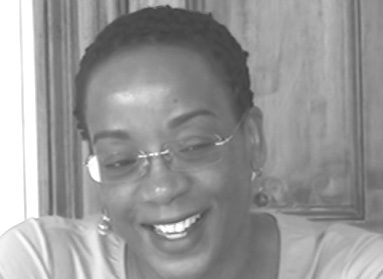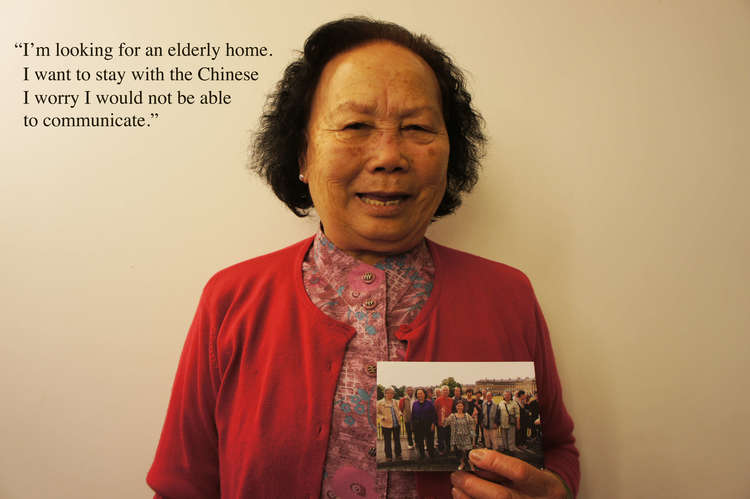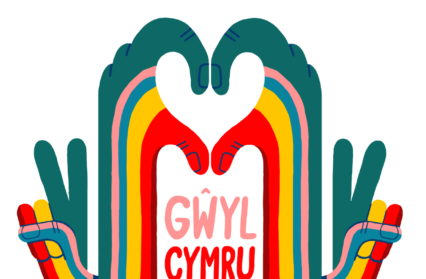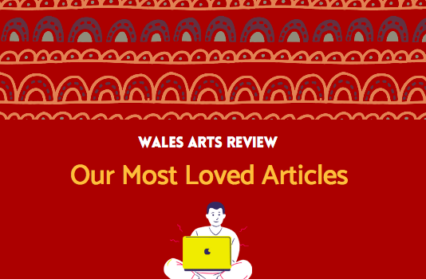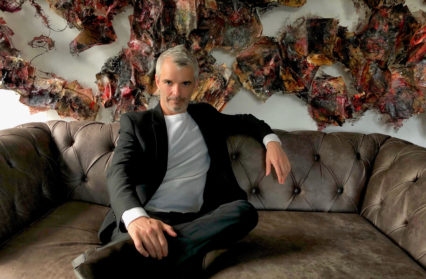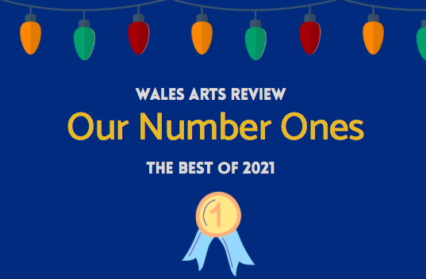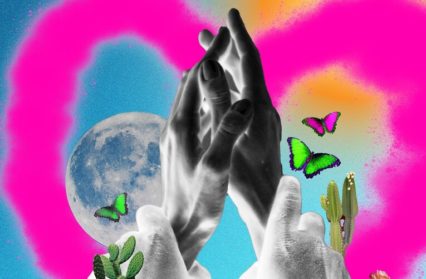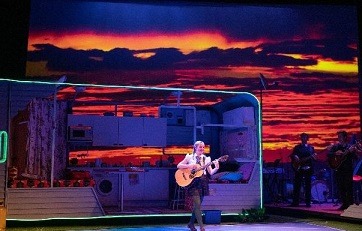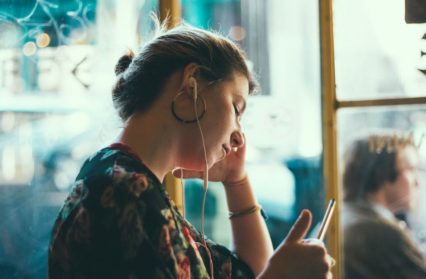Praisesongs from Wales is a rich and creative digital research resource dedicated to the celebration of older men and women of colour living in Wales, and to the development of a digital story archive of their lives. Durre Shahwar spoke to researcher-activist, Dr. Roiyah Saltus, the lead of the project, to find out more.
Tell us about Praisesongs From Wales; what the project is, its conception, its aims and so on.
I began the process of collecting stories of, and commissioning films on the lives of older people in Wales in 2010, and over the years the stories have moved from being part of the dissemination of the findings, to an integral element of the research process. Thus, the projects I have led on, and those I have contributed to as a Co-I, have taken a decided turn towards exploring the lives of older people through visual arts in particular, and creative arts in general. To date, the stories have emerged from a programme of research. Of equal importance, is the fact that I am not alone in this endeavour; the aim is to also showcase the stories collected by others, and from other projects and studies that have been conducted in Wales.
Praisesong is a word close to my heart. It has two meanings of note: (i) the act of expressing admiration, commendation and laudation and (ii) the offer of a grateful homage in words, song or story. The word sums up my love for the project, my intent and my focus. Praisesongs is a creative space and research resource dedicated to the celebration of older men and women of colour living in Wales, and to the development of a digital story archive of their lives. It is ultimately about bearing witness to the daily lives of our Elders of colour in Wales. It is about rendering their collective stories as credible sources of knowledge and evidence that can shape and inform policy in Wales in ways that are meaningful to all its residents.
What are some of the themes that emerge in the stories?
To date the stories on the website are very specific to the studies in which they are based. So key themes explored include: dignity, agency, community, belonging, care expectations, identity, resilience, family and friends. Thus, I have categorised the stories as linked to the aims of the respective studies (dignity, wellbeing, understandings of place) which is helpful to some, but really doesn’t convey the full range of themes and points of reflection. There is a second batch of stories currently awaiting to be moved to the website that explores everyday informal leisure activities of older Caribbean and African migrants, and understandings of place-based belonging in Wales. This series includes ‘Knowing Butetown from a gut level’ (Keith Murrell) and ‘For me, sport is politics’ (Forday Fofana).
How difficult or easy was it to compile these stories, what was the process behind them, how willing people were to share?
The Storytellers are open and honest, giving candid insights into their lives and experiences. Whether you relate to them, empathise with them, or just wish to learn about them, each storyteller has gifted us with something to reflect on.
Getting people to share their stories was not particularly difficult. I have worked hard with the storytellers and have established relationships with many of them that stretch back over many years. For some of the stories, I worked with some incredible storygatherers and companies such as Storyworks UK, skilled in drawing together the key threads of the stories. The teams I managed also had extensive training in collecting stories and indeed we all had to go through the process of telling our own story. That was a very important developmental step for me. Also important was capturing the process of storytelling from the point of view of the storyteller. Solange Saltus’ ‘‘Making a digital story’ is one example.
The storytellers were as ‘hands- on’ as they chose to be. In some cases – for example ‘Change but no Change’ (June Taitt) and ‘I just get on with in’ (Suze Duval) – the storyteller followed the traditional method of digital storytelling and wrote 250 words, compiled the pictures and then worked with the story facilitator to create the digital story. In other cases, the storytellers were recorded being interviewed with editing work to pull the story into a short, 3 – 4-minute video. This was the case with ‘The journey you take shapes the care you need’ (Tue Hong Baker), and ‘Treat me as me’ (Susheela Lourie). In some cases, picture stories were created, Mrs Lee’s story for example. Here the focus was on capturing her image, and based on discussions and interviews, findings a short excerpt that spoke to the essence of her story. I have also started to mount stories captured by other people and organisations and in these case, I am not sure of the process, but I suspect if follows one noted above. ‘There is life after Cancer’ by Mrs Innocent is one example.
How would you describe your work more generally?
I am a researcher-activist. I trained as a feminist sociologist and my research incorporates critical race theory, feminism, community development theory, and critical perspectives in health, social policy and practice. My abiding research interest is rooted in intersectionality, in particular, the interplay and impact of, gender, age and social class as experienced by racialised, migrant and marginalised population groups.
My standing position is that complex multidimensional inequalities among people from multiple historically oppressed and marginalised populations call for novel approaches that make local knowledge central in the process of meaningful interventions from academics like myself. My research is steeped largely in a qualitative and participatory framework and increasingly rooted in arts-based methods and artful engagement practices. Based within a human rights and social justice grounding, I have been able to conduct research that seeks to impact on the everyday lives of people as well on the overarching dominant knowledge regimes and linked policies and practices which shape the ways in which we all live.
Completed projects include a UK-widesurvey of archive holdings of printed and audio-visual materialsto identify and chart national research resources for Caribbean Studies and the history of Black and Asian people in Britain, a Wales-wide programme of research to consolidate research evidence on the health and social care of minority ethnic people, and a series of qualitative and mixed-methods studies on understandings of dignity, and on experiences and expectations of care, drawing on the perspectives of older Caribbean migrants (and on the perspectives of older women from a range of minority ethnic backgrounds) alongside the surveyed findings of community-based social care and support professionals across Wales. ‘Go Home’: Mapping the unfolding controversy of Home Office immigration campaigns is a recently completed UK-wide study that explored the impact on local communities (Cardiff included) of current publicity campaigns about migration by the UK Home Office, and Representing communities: developing the creative power of people to improve health and wellbeing (July 2013 to July 2017), a large multi-site project to establish how community representations produced through creative-arts practices can be used as forms of evidence to inform health-related policy and service development. I led on the Representing Butetown work package and the focus was on the leisure pursuits, physical endeavours and creative activities of older people, with a focus on individual as well as collective wellbeing (behaviours, expectations and representations). Stories, as well as a wide range of other creative outputs including photographic exhibitions, performances, visual art pieces were central elements of the study.

What are some particular challenges and difficulties faced by the older generation who come from different heritages and backgrounds, in Wales today?
The evidence of the challenges and difficulties faced by older migrants and people of colour in terms of health and social care provision, access and utilisation are well established. Older people in general are more than the challenges they face; let me focus on that. What interests me is the agency, the tenacity, the strategies used by older migrant and marginalised groups in the face of these challenges. That is what is so often left out of the equation. How do older people retain semblances of dignity in the face of a society that is designed to discriminate based on colour, sex, nationality, class, and age? For minorotised and marginalised older population groups in particular, what cultural wealth, community assets, and sources of solace and strength are at play? What do we know about these buffers and up-lifters?
In our current political spectrum, how important is it to represent the older generations especially, to make sure that their histories do not get lost and dismissed?
Importantly, this work must be seen in the context of the decolonising agenda.
In the context of Praisesongs, decolonising to me is about developing and employing critical, historical and conceptual tools to see how deeply, richly, problematically interconnected are global histories of travel, colonisation, empire and migration. As Stuart Hall reminds us ‘we are here because you were there’. Calls for the decolonisation of countries, institutions, the mind and of knowledge are not new and given the rise of fake news, and new forms of state power, this latest wave of decolonising movements is pressing and of great importance. For me (re)presenting the lives and experiences as well as the agency and resourfulness of older population groups is part of this struggle. It is about findings ways to bear witness – in this case, to give testimony to the lives of older people from racialised backgrounds – as a way of repositioning them as central and not perphipheal to Welsh society.

What’s next for Praisesongs?
There is an increasingly amount of creative work taking place rooted in capturing the stories of Wales’ Elders and my aim is to continue to make connections with other story-gatherers so that perhaps the stories can be included in Praisesongs. As you know we have a few stories from other projects and I want to work with others so that the archive is full of stories from across Wales, and by all our Elders. I need to work with website designers as well as I have very limited expertise in this area and it takes me hours to mount just one story! However this work – my labour of love – is ultimately about drawing on the knowledge from this generation in ways that are as empowering for them as they important and timely for those seeking to make radical changes to the ways in which we structure our lives and the world we live in.
Funded by George Ewart Evans Centre of Storytelling (USW), my current study – Sitting in the Twilight: Wellbeing, Aloneness and Leisure– is exploring in partnership with Yvonne Connikie, aloneness and notions of accumulated resourcefulness and agency, with a focus on the established leisure pursuits of the oldest old in Wales. This project, which we are tracking via a series of blogs, is rooted in collecting digital and picture stories. A PhD Studentship is also currently being advertised which will survey the views as well as capture the stories of specific older population groups – LGBT+, first generation migrants and refugees from minoritized backgrounds, with a focus on their understandings of lonelieness and their pathways ways to, and expectations of, support and intervention. Yes, this is a wide spectrum of groups but the survey work will add to the evidence base that is needed in this area in Wales. Importantly for Praisesongs and the work myself and others are doing, the story-gathering and other creative work set to take place will explore the continued importance of the arts in bringing alive the daily lives of people, and of providing important tools and creative platforms in which to re-imagine how we want out world to be.


